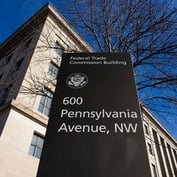I am, at heart, a trusting, optimistic soul.
Some people may think I’m a pessimist, but my “pessimism” is just the defensive measure of someone who expects every new restaurant to be better than every other restaurant I’ve ever visited; every cup of coffee better than every cup of coffee I’ve drunk before; every twist in the Patient Protection and Affordable Care Act (PPACA) implementation story to be more exciting than the last.
I still trust that the people at the Federal Bureau of Investigation (FBI) and the National Security Agency (NSA) are working to keep bad guys from blowing me up when I pass through Herald Square on the way to the subway, not divulge the angry emails I dashed off in a fit of rage then, thank goodness, got myself to delete before hitting send.
I firmly believe that, whatever problems PPACA, the PPACA exchange program, the U.S. Department of Health and Human Services (HHS), and various HHS agencies and other federal agencies have, federal officials (and state officials, and employees of the state and federal PPACA exchange vendors) just want to make the exchanges a regulation-friendly version of Travelocity.
But it hit me, as I was trying to figure out how to cover the story about the tech company executives visiting the White House today, that the HHS HealthCare.gov enrollment system story is closely related to the NSA surveillance controversy story.
The White House apparently wanted the executives to come in and talk about how much better HealthCare.gov is working. Instead, it seems, the executives talked mainly (maybe solely) about how to get rid of the impression that their companies are funneling every character we type straight to the NSA.








 December 17, 2013 at 05:45 AM
December 17, 2013 at 05:45 AM










